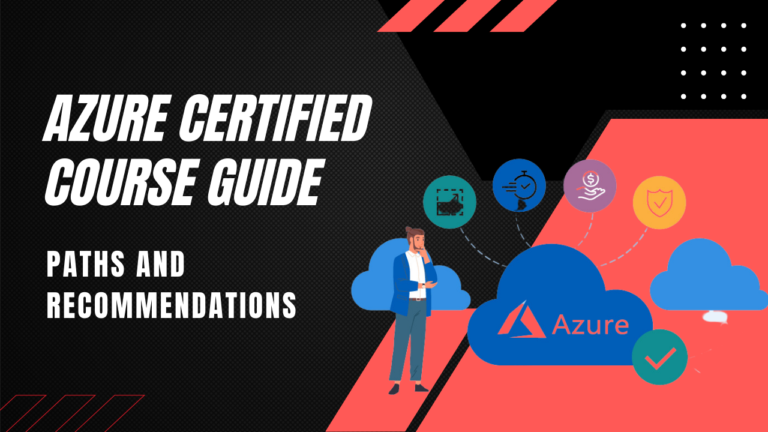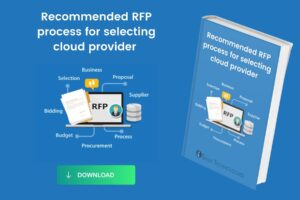Are you an IT professional looking to transition into the world of DevOps? Cloud DevOps training can provide you with the skills and knowledge necessary to make this career change successfully.
As technology continues to evolve, organizations are increasingly adopting cloud infrastructure and DevOps practices to streamline their development and operations processes. This shift has created a high demand for skilled DevOps engineers who can effectively manage cloud-based environments.
DevOps for IT Professionals
If you have a background in IT and want to become a DevOps engineer, it’s essential to acquire the right set of skills. DevOps combines development and operations, focusing on collaboration, automation, and continuous integration/continuous deployment (CI/CD) practices. By undergoing DevOps training, you will gain expertise in various areas, such as cloud platforms, containerization, configuration management, and monitoring tools. This knowledge will enable you to bridge the gap between development and operations teams, fostering effective communication and collaboration within your organization.
DevOps Engineer Training
To kickstart your journey as a DevOps engineer, it’s crucial to enroll in a comprehensive training program that covers the essential concepts and technologies. Look for training courses that provide hands-on experience with popular cloud platforms like Amazon Web Services (AWS), Microsoft Azure, or Google Cloud Platform (GCP). These platforms offer a wide range of services, including virtual machines, container services, serverless computing, and more, which are integral to DevOps practices.
Importance of DevOps Training
Bridging the Gap:
DevOps training helps IT professionals bridge the gap between development and operations, enabling them to understand both aspects and effectively collaborate with different teams involved in the software development lifecycle.
Streamlining Processes:
DevOps emphasizes automation, continuous integration, and continuous delivery. Through training, IT professionals can learn the tools and techniques needed to automate processes, resulting in faster and more efficient software development and deployment.
Enhancing Collaboration:
DevOps fosters a culture of collaboration and communication among teams. Training equips IT professionals with the necessary skills to facilitate effective communication and collaboration, breaking down silos and improving overall team productivity.
Scalability and Flexibility:
Cloud-based DevOps allows for scalability and flexibility, enabling organizations to adapt to changing business needs. By acquiring cloud DevOps skills, IT professionals can contribute to designing and implementing scalable infrastructure solutions.
Industry Demand:
The demand for skilled DevOps professionals, including DevOps engineers, is on the rise. Organizations across various industries are increasingly adopting DevOps practices, creating a plethora of job opportunities for IT professionals with the right skill set.
DevOps Training Options
Online Courses:
Numerous online platforms offer comprehensive DevOps training courses specifically designed for IT professionals. These courses cover a wide range of topics, including version control, containerization, continuous integration, cloud platforms, and more.
Certification Programs:
DevOps certifications validate an IT professional’s expertise in implementing DevOps practices and using relevant tools. Certifications like AWS Certified DevOps Engineer, Microsoft Certified: Azure DevOps Engineer, and Google Cloud Professional DevOps Engineer can significantly enhance one’s job prospects.
Hands-On Experience:
Practical experience is invaluable when it comes to DevOps. IT professionals should seek opportunities to work on real-world projects, either through internships, open-source contributions, or personal projects. This hands-on experience will complement their training and boost their confidence in applying DevOps principles.
What else? Make a note of the following.
In addition to cloud platforms, training programs should cover containerization technologies like Docker and container orchestration tools such as Kubernetes. These tools are widely used in DevOps environments to enable scalable and portable deployments.
Configuration management tools like Ansible, Puppet, or Chef are also essential skills for a DevOps engineer. These tools automate the provisioning and management of infrastructure, allowing for consistent and reproducible environments.
Monitoring and logging tools such as Prometheus, Grafana, ELK Stack (Elasticsearch, Logstash, Kibana), or CloudWatch are crucial for maintaining visibility and ensuring the performance and availability of your applications.
Moreover, gaining knowledge of CI/CD pipelines and associated tools like Jenkins, GitLab CI/CD, or CircleCI is vital for automating the software delivery process.
When selecting a training program, ensure it offers practical exercises, real-world scenarios, and projects that simulate the challenges faced by DevOps engineers. This hands-on experience will help you build confidence and proficiency in applying your knowledge.
Conclusion
In conclusion, DevOps is a rapidly growing field, and with the right training, you can successfully transition into a career as a DevOps engineer. By acquiring skills in cloud platforms, containerization, configuration management, monitoring, and CI/CD practices, you’ll be well-equipped to meet the demands of modern software development and operations.
Invest in a comprehensive DevOps training program, gain practical experience, and stay updated with the latest industry trends to enhance your career prospects in this exciting field.





